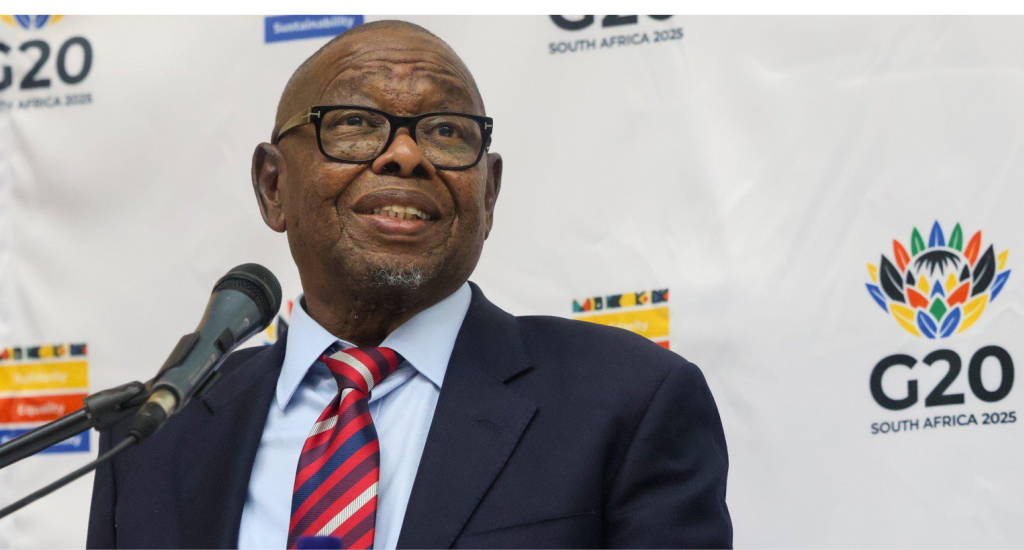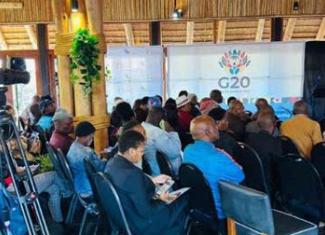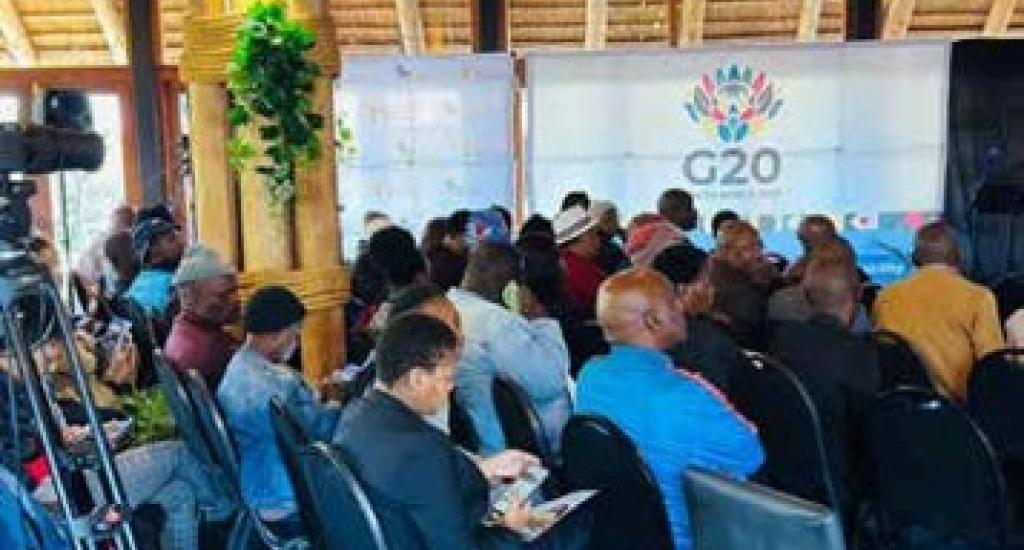South Africa leads key G20 meeting to drive Africa’s science and innovation agenda

The University of Mpumalanga (UMP) recently hosted the second G20 Research and Innovation Working Group (RIWG) meeting, in partnership with the Department of Science and Innovation. Featuring key sessions from the G20 Bioeconomy Initiative and Oceans20, the event underscored South Africa’s growing role in shaping global science, technology and innovation policy.
Held at UMP’s Mbombela Campus, this landmark event, aligned with South Africa’s G20 Presidency, highlighted the vital role that African institutions can play in advancing the global knowledge economy. Framed by the theme; "Harnessing Global Solidarity for the Implementation of STISA 2034, the meeting echoed the broader national G20 message of Solidarity, Equality, Sustainability.
A focus on Africa
The RWIG meeting coincided with the Africa Day celebrations, adding symbolic weight to a gathering focused on progress and partnership. Delegates from across the globe marked a fundamental moment in Africa’s pursuit of self-reliance and innovation-driven development. In his address, Minister of Science and Innovation, Prof Blade Nzimande, emphasised that Africa's ongoing challenges of poverty, inequality and underdevelopment remain deeply rooted in its history of colonial exploitation.
Minister Nzimande underscored the importance of the Science, Technology and Innovation Strategy for Africa (STISA), describing it as a vital framework for achieving the continent’s development goals. It was adopted during the 23rd Ordinary Session of the African Union (AU) Heads of State and Government Summit.
“The strategy is underpinned by science, technology and innovation as multi-function tools and enablers for achieving continental development goals. The realisation of this strategic objective requires the AU to implement the STISA with the African Continental Free Trade Area (AFCFTA).
“The AFCFTA can play a vital role in promoting innovation-driven trade in biotech, pharmaceuticals, and green technology. To fulfil this commitment, South Africa is developing world-class research platforms to translate strategy into action through flagship initiatives such as the Southern Africa Network for Biosciences and the African Institute for Mathematical Sciences,” said the Minister.
He emphasised that South Africa and the rest of the continent have a unique opportunity to position themselves in the international science diplomacy and innovation-led development by fostering a robust bioeconomy. According to the Department of Science, Technology and Innovation, the bioeconomy aims to leverage bioinnovation to drive economic growth and promote social development. This approach prioritises key sectors such as health, agricultural, industrial and environmental, and indigenous knowledge, guided by the National Bioeconomy Strategy and underpinned by cutting-edge science and traditional knowledge systems.
The Minister noted that while Artificial Intelligence (AI) presents both opportunities and complex challenges, South Africa and African, as a whole, can harness the power of AI to transform both the bioeconomy and the digital economy. By embracing AI, youth-led small, medium and micro enterprises across the continent can greatly enhance operational efficiency, make informed, data-driven decisions, and develop innovative products and services that distinguish them in both local and global markets.
The RWIG serves as a valuable platform for South Africa to demonstrate its leadership in advancing science, technology and innovation initiatives aimed at addressing complex challenges across the continent. The Minister called on G20 member states to recognise South Africa as a central hub for research and innovation in Africa, and to support its efforts through targeted investments that drive the transformative change both the continent and the global community seek to achieve.
Global collaboration
The RIWG is a vital component of the G20’s science diplomacy. It brought together representatives from the world’s leading and emerging economies, including several African nations and focused on addressing urgent global challenges through innovation-driven approcahes. Discussions centred on critical issues such as the just energy transition, food security, biodiversity and the ethical and responsible use of artificial intelligence.
“As the world economy moves into a new era defined by innovation, sustainability and digital transformation, South Africa is taking decisive steps to contribute to the emerging future. The country is on a mission to champion a science, technology and innovation path that is not only ethically imperative but essential to advance the domestic and global economic development agenda,” added the Minister.
Statistics show that the continent accounts for only 1.3% of global research spending and generates only 0.1% of the world’s patents. Despite this, the continent holds vast reserves of minerals and rich indigenous knowledge systems. The resources underscore the urgent need for bold, innovative policies and institutional frameworks aligned with science, research and innovation. Increased investment in this sector is essential to drive inclusive growth, eradicate poverty and enable Africa to unlock its full potential.
In addition, this has a potential to help reposition Africa as a strategic global player, shifting the narrative away from the view that the continent depends and relies on foreign dominance.
The outcomes of these discussions are expected to play a key role in shaping the G20 Research and Innovation Ministerial Declaration and aligning with the broader priorities of South Africa’s G20 Presidency. v




